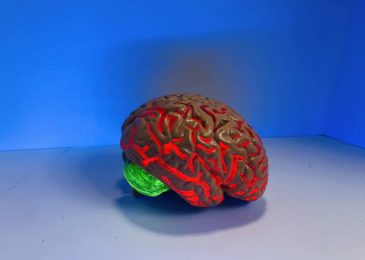“Semper Fi.” The Eagle, Globe, and Anchor. Chesty the Bulldog. These are some of the popular images and sayings you’ll find on Marine challenge coins.
Not familiar with challenge coins for Marines or otherwise?
These coins — roughly two to three times the size of a quarter — have a long tradition in military service. They are highly decorative and come in many styles. Legend dates them back to Roman Legions, and a famous story has them saving lives in World War I.
They come in all sorts of styles and shapes. Marines coins are round (like a coin), shaped like dog tags, look like arrowheads, or any number of forms. They can come with lettered scrolls, include cut-outs, and are as varied as one can imagine.
The popularity of military and Marine challenge coins has made them a staple of other government agencies like the FBI, CIA, and even the White House. You’ll also see local police and fire departments use the coins.
In the following post, we’ll discuss the history of challenge coins, how you can use them, and some popular designs.
Where Do Marine Challenge Coins Come From?
Marine challenge coins emblazoned with the Marine Corps’ Eagle, Globe, and Anchor emblem or the Marine Prayer are the continuations of a long military tradition.
Challenge coins are different from commemorative coins. Commemorative coins are minted in recognition of a special event. You’ll see these advertised after a Super Bowl or to mark a historic occasion, say the 75th anniversary of the Moon landing.
Challenge coins generally denote membership or loyalty to a group or military unit. They are sometimes passed on the sly through a handshake, and there’s a drinking tradition that gives the coin it’s “challenge” moniker (more on that later).
The most famous story about challenge coins’ origin involves a fighter pilot in World War I. Before the pilot deployed, an officer in his unit minted matching coins to honor the squadron. These were distributed to the company as a morale booster — something that is still done today.
Legend has it that a pilot in the unit was shot down and taken captive by the Germans. The pilot later escaped and found his way to a French garrison. The French thought he was a German spy and threatened his execution. The American pilot, still in possession of his challenge coin, was able to prove his allegiance and eventually returned to United States forces.
While historians debate the origin of challenge coins, what’s not in doubt is the popularity of the tokens.
For the last 20 years, military leaders and the President of the United States have distributed and displayed these coins. President Bill Clinton is believed to be the first president to display his coin collection in the Oval Office. Presidents George H.W. Bush, Barack Obama, and Donald Trump all had coins minted and gave them out to visiting dignitaries and service members.
‘Coin Check!’
The “challenge” in challenge coins come from a drinking game. Traditionally, a member of your unit will tap the bar or table with his coin and proclaim “coin check!”
Everyone assembled then produces their coins. Anyone without their coin is obligated to buy the round. If everyone produces their coins, then the issuer of the coin check has to buy. Alternatively, the coin check can be played where the last person to produce their coin is forced to buy.
Obviously, the simple rules of the coin check challenge are often modified by the specific unit.
Another interesting quirk of the challenge coin is how it’s awarded. Since the tradition of challenge coins’ sits outside the realm of official medals and accommodations, the coins are often delivered through a secret handshake. A well-published photo shot by Brendan Smialowski for Agence France-Presse (distributed in the U.S. by Getty Images) shows the outstretched hand of former President Obama about to deliver a handshake to a man at Marine Corps Air Station Miramar in California. In the president’s palm is his White House challenge coin.
Another well-documented example of the secret handshake was when then-Defense Secretary Robert M. Gates conducted his final tour of forces in Afghanistan in 2011. The secretary distributed some 2,000 Dept. of Defense challenge coins to troops. Almost all of them were delivered in his palm during a handshake.
The secrecy of passing a challenge coins helps with the coins’ mystique – building morale and camaraderie. It’s a wink to those in the know and that you respect.
Not Without Controversy
Unfortunately, people sometimes criticize challenge coins for their designs. Most recently, President Trump’s remake of the White House challenge coin was dinged by critics for replacing America’s motto, “E. Pluribus Unum,” with his polarizing campaign slogan, “Make America Great Again.”
The military general interest website WeAreTheMighty.com has a great post on different designs for challenge coins. But some of the designs have some iffy copyright issues. One example is a challenge coin in the shape of Disney’s iconic Mickey Mouse logo made by the Naval Air Warfare Center in Orlando. Another is in the form of the logo for Marvel comics’ The Punisher. Another still includes the likeness of Comedy Central’s “South Park” characters.
Maybe more problematic is that while the vast majority of challenge coins are beautifully designed and dignified, some are crass and perpetuate violent military stereotypes. Not surprising considering the U.S. military’s gung-ho culture.
Outside the military, one controversial incident allegedly involving New York City police included challenge coins minted for the 67th Precinct in Flatbush with racist imagery.
So Many to Choose From
The great thing about Marine challenge coins is that they come in so many innovative designs. And the low cost to produce these bronze, copper, or nickel coins makes them great keepsakes, not just for Marines but for civilians, too.
Several businesses make these unique coins, and corporations are lining up to have their people’s achievements immortalized in a minted coin. You could have one stamped to your specifications and yelling, “Coin check!” in just a matter of weeks.
Like this article? Share it on Facebook, Twitter, or your favorite social media.





